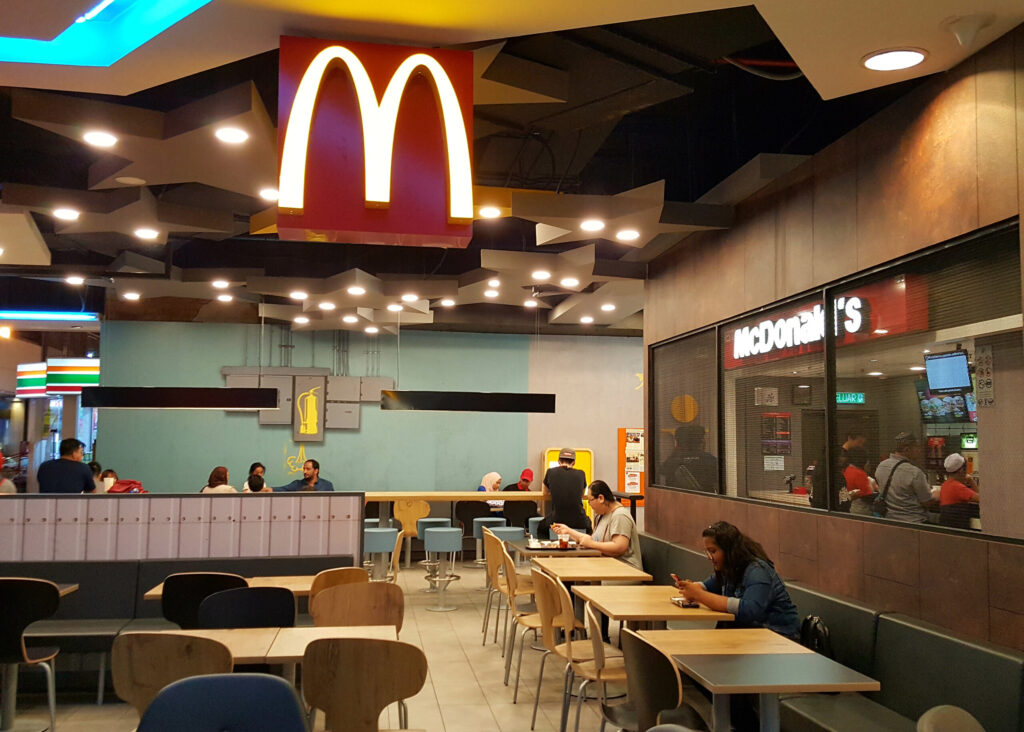Australia/Israel Review
Asia Watch: At every level
Feb 29, 2024 | Michael Shannon

Malaysia’s identification with the Palestinian cause – and strong antipathy to Israel – is deeply embedded in its politics and culture. The expression of this takes many forms, as some recent examples show.
Israel’s foreshadowed military action against Hamas in the Gazan city of Rafah drew a predictable response from the Malaysian foreign ministry – known by its metonym Wisma Putra – which condemned any Israeli large-scale offensive in Rafah “in the strongest terms”.
“This dastardly military operation clearly underscores the key goal of the Zionist regime to annihilate the Palestinians from their own land… Malaysia echoes the calls by the United Nations secretary-general for an immediate halt to the vile plan and urges the United Nations Security Council to take swift and decisive action to stop the massacre being perpetrated by the Zionist regime,” said the February 13 statement.
Israel’s war against Hamas in Gaza has led the Malaysian Government to seek other ways to target “the Zionist regime”. In December, Prime Minister Anwar Ibrahim announced an immediate restriction on Israeli-flagged or Israel-associated vessels from docking or loading cargo in Malaysian ports.
The move was triggered by the impending arrival of Zim Integrated Shipping Services Ltd, Israel’s largest shipping company, at Port Klang on Dec. 26, prompting the Ministry of Transport to impose a permanent ban on the company, which has been docking in Malaysia since 2002. This restriction means that Malaysia will no longer accept ships flying the Israeli flag or ships en route to Israel to load cargo in its ports.
How a move like this plays out is unknown as the shipping industry is rife with multi-layered stakeholders and the concept of ‘flag of convenience’, which refers to registering a ship in a country different from the shipowner’s country to reduce operational costs, avoid the regulations of the owner’s country, escape taxes, evade strict environmental regulations and hire low-wage international crew members.
However, the shipping industry is vulnerable to disruptions if a country imposes restrictions on ships from another country, potentially affecting the interdependent logistics supply chain in the industry.
Meanwhile, one company that has already suffered damage from Israel-targeted boycotts is McDonalds, which took a big hit internationally – confirmed in its quarterly earnings report released on Feb. 11 – after its Israeli franchisee announced, in the wake of Hamas terror attack, the donation of thousands of free meals to IDF soldiers, healthcare workers and residents of the affected region. This sparked outrage in countries such as Turkey, Egypt and Lebanon, but also Indonesia and Malaysia.
In December, McDonalds Malaysia launched legal action against Boycott, Divestment and Sanctions (BDS) Malaysia for allegedly defaming the company. The writ of summons claimed McDonald’s Malaysian businesses had suffered, putting their blame on the Malaysian NGO, which lobbies the Malaysian public, organisations and the government to boycott Israel and organisations that are “complicit with Israeli atrocities” towards Palestinians.
The local call for boycotting such products was done through social media, providing netizens with comprehensive lists. Apart from McDonald’s, they include many household names such as KFC and fashion brand Zara.
The focus of outrage extends to individuals. Malaysian online communities have targeted Ipoh-based political blogger and netizen Ian Miles Cheong, who expressed sympathy for Israel on October 7 last year by tweeting on X, “I have always supported Israel’s right to exist. What you’re seeing now in Israel would happen everyday if not for the Israeli Defence Force (IDF). Israel has a right to exist and a right to defend itself.”
Some Malaysian netizens have called for Communications Minister Fahmi Fadzil to take action against Cheong under the Sedition Act, under which Malaysians can be charged for expressing views that could potentially sow discord among the communities or “bring into hatred or contempt or to excite disaffection” against a ruler.
Cheong, whose online activity is largely right-leaning commentary upon American politics and cultural issues, told the New Straits Times that he wasn’t “pro-Israel”, but has consistently expressed support for peace and has backed Palestine’s right to exist.
“My views on the matter have been very nuanced contrary to the regurgitated baseless claims about my past from unreliable far left-wing and transgender sources who have been literally trolling me for years due to my conservative views,” he said.
Some online commentators suggested that Cheong downplayed his support for Israel because of Malaysia’s sedition laws, after a 36-year-old Malaysian man was arrested in December for having said his country should open diplomatic relations with Israel in an interview on TikTok.






